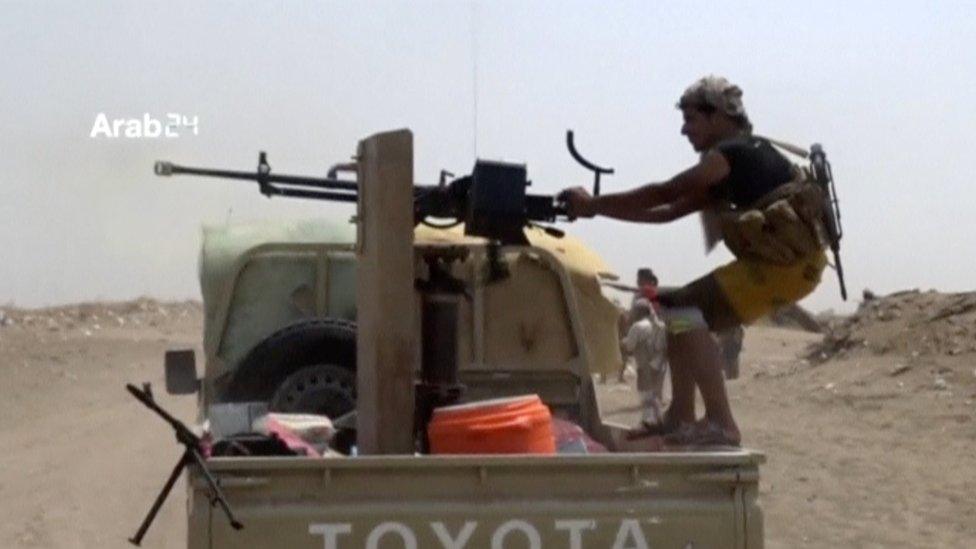Yemen crisis: UK's Hunt warns Hudaydah deal 'could die within weeks'
- Published

Forces on both sides are yet to leave Hudaydah
A peace deal in Yemen's main port city "could be dead within weeks", British Foreign Secretary Jeremy Hunt has said during a visit to the country.
The Yemeni government and the rebel Houthi movement have yet to implement a UN-brokered plan to pull out and redeploy forces around Hudaydah.
The port is the principal lifeline for two-thirds of Yemen's population, which is on the brink of famine.
Mr Hunt said 80,000 children in the country had already starved to death.
More than 20 million people were on the brink of starvation, he added. The UN says at least 6,800 civilians have been killed and 10,700 injured in the fighting.
Saudi Arabia and the United Arab Emirates lead a coalition that has imposed a partial blockade in Yemen after President Abdrabbuh Mansour Hadi was forced to flee abroad by the Houthis - a group the Sunni states consider to be a proxy of regional Shia power Iran.
The pull-out from Hudaydah is a critical part of a ceasefire agreed in Sweden in December. It was intended to lead to broader talks to end the four-year conflict.
The deal also involves the release of thousands of prisoners, which has also not yet taken place.
Mr Hunt, the first Western foreign minister to visit the country since the conflict began, said the two sides were now in the "last chance saloon".
Speaking from the southern port city of Aden, which is under Yemeni government control, he urged them to take the risks necessary to secure peace.
Allow X content?
This article contains content provided by X. We ask for your permission before anything is loaded, as they may be using cookies and other technologies. You may want to read X’s cookie policy, external and privacy policy, external before accepting. To view this content choose ‘accept and continue’.

Mr Hunt's visit to Aden follows meetings with President Hadi and Saudi officials in Saudi Arabia and with Houthi spokesman Mohamed Abdul Salem in Oman.
Last month UN officials said they had gained access to a vast store of food in Hudaydah for the first time in six months.
The Red Sea Mills facility holds enough grain to feed 3.7 million people for a month, but the UN had warned the grain was at risk of rotting.
The hidden victims of the Yemen war
The UN is appealing for aid funding. By the end of last month member states had promised $2.6bn (£2bn) - a 30% increase on the amount pledged at a similar conference last year, but $1.6bn short of the total the UN hopes to raise.
Saudi Arabia and the United Arab Emirates are the biggest potential donors this year, having pledged $500m each.